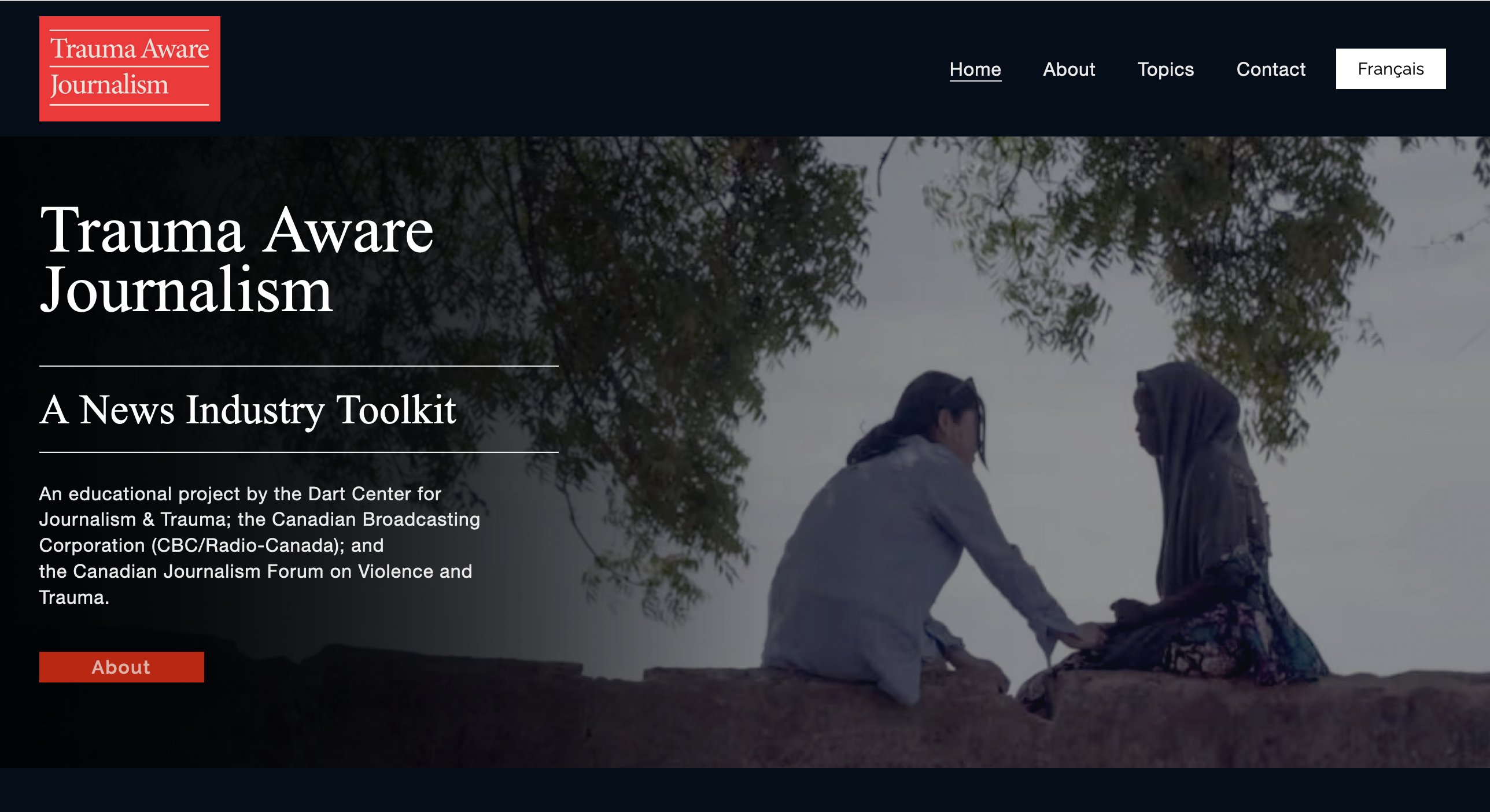Online toolkit will aid newsrooms, j-schools navigate trauma
A new resource dedicated to helping media workers and students with reporting on trauma launched in May, produced by CBC/Radio-Canada, the Dart Centre for Journalism and Trauma and the Canadian Forum for Violence and Trauma.
Featuring a collection of videos and aggregated guidance materials, the website includes modules dedicated to topics such as interviewing children, trauma-aware leadership and reporting on vulnerable communities, to support both reporting processes and journalists’ own mental health.
“For years, and certainly when I started in the business, it was all ‘suck it up. This is just the work.’ And if it means working 18 hour days and if it means having to watch terrible video images or doing really difficult interviews, that was just part of the job,” said Dave Seglins, project lead.
“We as journalists never thought for a moment, ‘oh, this could affect us.’ And also, how could we better cover the people who we often interview who are traumatized or suffering because they’ve gone through some really horrible experiences? How can we bring in a more ethical approach towards it?”
A decade of cuts in the industry and the resulting imperative to do more with less has also led to “less time to take care when we are covering vulnerable people and vulnerable communities.”
In recent years, movements around Canada’s legacy of anti-Black and anti-Indigenous racism have resulted in heightened awareness of the importance of lived experience, said Seglins.
“But it’s really about accounting for what have people gone through in their lives and their histories that they bring to the job, whether it’s through the lived experience of racial, cultural experience or discrimination, or whether it’s through their own kind of mental health journey, their own exposure to traumatic events in their personal lives.”
Meanwhile, a new generation of journalists are coming to the industry with different expectations of their workplaces and “a higher degree of literacy and confidence in talking about mental health.”
The more than dozen contributors to the website include clinician and Dart Centre consulting psychologist Dr. Kate Porterfield and Canadian journalist, filmmaker and author Melissa Fung.
TraumaAwareJournalism.org is seeking sponsors for subsequent additions to the resource, which would include modules catering to longer form investigative work, documentary and freelance communities.
Steph Wechsler is J-Source's managing editor.




